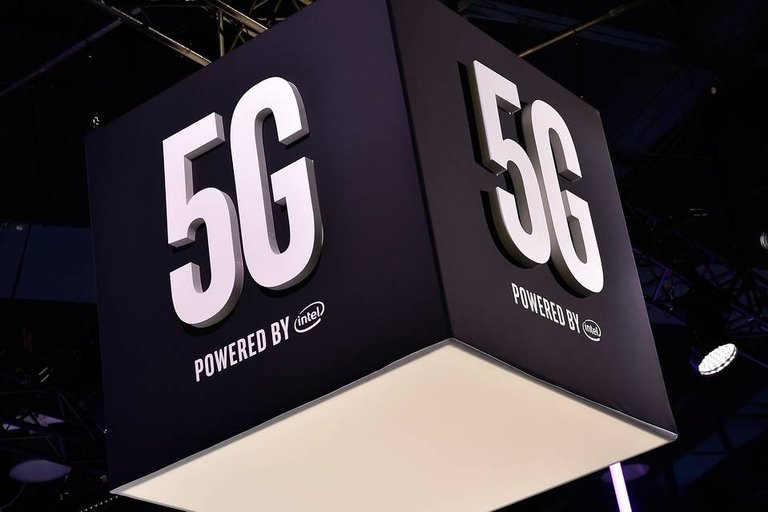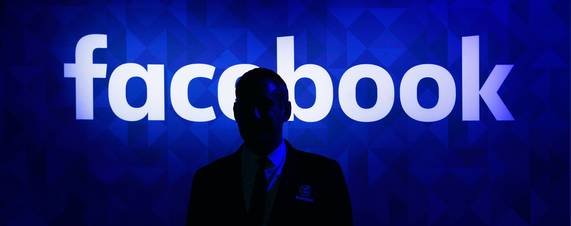
cybersecurity trends, breaches and best practices.
Good morning CIOs. Regardless of whether the government or the private sector builds out an extensive 5G wireless network in the U.S., the larger point for businesses is that one is on the way, and on a tighter timeline and with greater urgency than has been apparent until now. The existence of a better wireless system would address one of the chokepoints in IT. Networking is only starting to catch up with the pace of innovation in other areas of technology.
“Some White House officials view next-generation 5G wireless service as a ‘key area of competition,’ and they say that the threat from China, in particular, justifies a ‘moonshot’ government effort like the construction of the interstate highway system,” the Journal says, citing a memo produced by officials at the National Security Council. The memo, first reported by Axios, “urges the Trump administration to consider extraordinary efforts to clear the way for the new technology or even to help build it in order to counter the growing economic and political threat from China’s aggressive efforts to develop 5G.” It also raises a host of questions for businesses, such as the governance of customer data on a digital platform that is so closely tied to the state.
The U.S. had the world’s best telecommunications infrastructure during the 20th century, and that was tied to its economic growth and innovation. During the wireless era, it has been compared unfavorably to one country after another, from Finland to South Korea and China. Closing that gap is important, but as the example of China shows, digital networks can be powerful platforms for state surveillance and control of information.
Gauging the impact of automation on everyday life. Automation anxieties have continuously surfaced over the past two centuries whenever a major new technology came along, CIO Journal Columnist Irving Wladawsky-Berger writes. Given our increasingly smart machines, such concerns have understandably accelerated in recent years.

Intel warned Chinese companies of chip flaws before U.S. government. In initial disclosures about critical security flaws discovered in its processors, Intel Corp. notified a small group of customers, including Chinese technology companies, but left out the U.S. government, writes the WSJ’s Robert McMillan and Liza Lin. The decision raises concerns, security researchers said, as it potentially could have allowed information about the chip flaws, dubbed Spectre and Meltdown, to fall into the hands of the Chinese government before being publicly divulged.
Who heard the news first? Chinese firms Lenovo Group Ltd. and Alibaba Group Holding Ltd. as well as Microsoft Corp., Amazon.com Inc. and ARM Holdings in the U.K. were clued in early by Intel.
Who didn’t? Smaller firms, also an entity called the U.S. government.
Why this may matter. Jake Williams, president of the security company Rendition Infosec LLC and a former National Security Agency employee, tells the WSJ that it is a “near certainty” Beijing was aware of the conversations between Intel and its Chinese tech partners, because authorities there routinely monitor all such communications.
Cryptocurrency exchange says it was hacked. Coincheck Inc., a Tokyo-based cryptocurrency exchange, said Friday that 523 million units of a virtual currency called NEM disappeared due to unauthorized access by someone outside the system, the Journal’s Takashi Mochizuki and Paul Vigna report. It said the missing cryptocurrency all belonged to the exchange’s customers and was valued at about $530 million.
What makes such exchanges vulnerable? They don’t have large compliance staffs, compared with regulated exchanges and banks. Also they usually hold customers’ money in company accounts, giving thieves a single target to hit. Remember Mt. Gox? The Japanese exchange saw $450 million in bitcoin go ‘poof’ in 2014, based on the bitcoin price at the time. Some of those bitcoin were later recovered.
Fitness tracking app gives away location of secret US army bases. The Guardian reports how military analysts suddenly got hip to Strava, a fitness tracking company, after it released a data visualization of every activity uploaded by its users–”more than 3 trillion individual GPS data points.” The user data include runs made by soldiers in far-off places. Writes the Guardian: In locations like Afghanistan, Djibouti and Syria, the users of Strava seem to be almost exclusively foreign military personnel, meaning that bases stand out brightly.”
ATM makers warn of ‘jackpotting.’ Hackers are getting U.S. cash machines to spit out cash, ATM makers Diebold Nixdorf Inc. and NCR Corp. warn. Krebs on Security reports that a confidential U.S. Secret Service alert sent to banks said hackers so far have targeted machines typically “located in pharmacies, big box retailers and drive-thru ATMs.”
Mueller’s team interviewed Facebook staff. At least one member of the Facebook Inc. staff working on Donald Trump’s 2016 presidential campaign has been interviewed by Robert Mueller’s team, Wired reports. Also in the sights of the special counsel’s team: Data analytics group Cambridge Analytica. Says Wired: “Among the curiosities of Cambridge Analytica’s involvement in the campaign is that its CEO, Alexander Nix, reportedly contacted WikiLeaks founder Julian Assange during the election in hopes of collaborating on the organization and release of hacked emails related to Hillary Clinton.”

Companies brace for GDPR. Companies are updating their data encryption practices and rolling out new privacy services in preparation for the May 25 launch of General Data Protection Regulation, new data privacy rules that restrict the types of personal data companies can collect and use across the European Union. The New York Times looks at some of the actions taken by big tech.
Google. The search giant has changed its underlying technology to make it easier to remove someone’s data. Googles also has had to redesign many of its consent agreements spanning products such as Gmail and YouTube.
Facebook. The social network on Sunday introduced a new privacy center that centralizes all of its security settings on one page.
Amazon.com. The company says customers can choose the region they want their data stored. Europe is an option. Amazon says it plans to strengthen cloud storage encryption.
EMERGING TECHNOLOGY

New quantum announcements coming from Microsoft, Google. Despite 12 years of research, Microsoft Corp. has yet to create a qubit. That will change soon as the company introduces a qubit believed more stable than those developed by rivals. “If it is right, then the software company would quickly overtake others who have a head start in the field and gain a huge advantage,” notes the FT. Google, meanwhile, is planning to demonstrate the next step towards “quantum supremacy,” using a quantum system to solve a problem “at the very limits of what is possible for a ‘classical’ computer, or one based on current design principles.”
The robot revolution: Humanoid potential. Humanoid robots are getting better at walking, talking and looking like humans. But as they continue to evolve, will us real humans want to spend time with them? And exactly how useful could they become? The WSJ’s Jason Bellini travels to Asia to meet some of the leaders in the humanoid robotics revolution.
MORE TECHNOLOGY NEWS
Paying for Twitter followers. An industry has grown up around selling to “celebrities”–business executives, comedians, porn stars, politicians, reporters, etc.–Twitter Inc. followers by the bushel. The New York Times investigates one such company, Florida-based Devuni, which sells retweets and followers through a stock of 3.5 million automated Twitter accounts. Some of the accounts are based on stolen identities.
A new marketplace. Says the NYT: “These accounts are counterfeit coins in the booming economy of only influence, reaching into virtually any industry where a mass audience–or the illusion of it–can be monetized.”
Look who’s following these guys. Dell’s Michael Dell, former football player Ray Davis and Louise Linton, wife of Treasury secretary Steven Mnuchin all have Devumi followers.
Singapore Airlines to invest hundreds of millions in digital tech. Reuters reports the airline will focus on automated technology research to decrease delays and lower maintenance costs. The carrier is working with the National University of Singapore on improving forecasting and understanding demand patterns. It is also starting a digital idea bounty program, awarding grants to winning digital ideas pitched by the airline’s staff.
WHAT YOUR CEO IS READING
Fewer MBAs becoming entrepreneurs. The prospect of starting one’s own business has become less attractive to recent grads as established companies up their salary offerings and change their culture to welcome entrepreneurial thinking. That’s the conclusion from an FT survey that finds startup activity at its lowest level among MBAs in eight years. “Organizations around the world are getting much better at trying to bake in an innovation and start-up culture,” Mark Potter, associate dean of Babson College’s Olin Graduate School of Business, tells the FT. “This is a very attractive alternative for our students.” Startup interest peaked in 2015 where the FT found that 22% of its student sample planned on going solo. This year the figure was 16%.
EVERYTHING ELSE YOU NEED TO KNOW
Stocks around the world have staged one of the best-ever starts to a year, a synchronized rally that has only gained momentum following 2017’s sharp gains. (WSJ)
Global investors are shifting more of their money overseas, betting that even as the U.S. stock market reaches new highs a resurgent global economy creates greater opportunities elsewhere. (WSJ)
R&B star Bruno Mars won Album, Record and Song of the Year at the Grammy Awards. One of his rivals for Album of the Year, Kendrick Lamar, swept the rap categories, taking home five trophies. (WSJ)
First lady Melania Trump took 21 flights in a three-month period on Air Force jets at a cost of more than $675,000 before she moved to the White House in June 2017, military records show. (WSJ)
The Morning Download is edited by Tom Loftus and cues up the most important news in business technology every weekday morning. You can get The Morning Download emailed to you each weekday morning by clicking http://wsj.com/TheMorningDownload.
nice
reply to me on my ploging